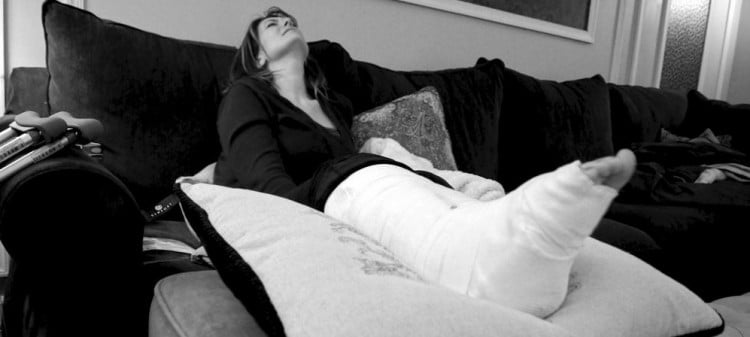A cervicogenic headache is a headache caused by pain referred from pain the neck, when the vertebrae in the upper neck become stiff. If you habitually lean forward in your chair or poke your chin out, you may be at risk from experiencing these types of headache as you are placing your body in an unnatural alignment.
Cervicogenic headaches are usually felt as a dull ache usually on one side. Pain can also be felt behind the eyes, at the back and top of the head, the forehead and around the ears. Your neck may also be stuff and you may even experience dizziness as well as pins and needles.
If you are experiencing these symptoms, consider the following factors to help alleviate your pain:
Posture
Have you developed bad habits such as sticking your chest out or leaning forward in your chair? Perhaps you could benefit from a workstation assessment.
Sleep
Try to avoid sleeping on your front as it can cause stiffness in your neck. Also ensure that you sleep on a supportive pillow.
Triggers
Write a diary to help you figure out why you are experiencing headaches. Is there a pattern developing? For instance, do they occur only a certain times of day?
Stress
Make sure you take regular breaks away from your workstation and remember to relax! Stress can be a huge contributory factor in getting headaches.
Water
Staying hydrated can really help to prevent headaches.
This is obviously not an exclusive list and you should always seek medical advice if you have any concerns.
Can Physio help with your headache?
Physiotherapy can benefit anyone suffering from headaches by advising on posture, strengthening and stretches exercises and releasing stiff joints and muscles. Acupuncture and taping can also be used alongside physiotherapy to manage your headaches.
Are you experiencing headaches? Our physios can see you at home or at work often within 24 hours. For more information and contact details please visit our local Physiocomestoyou page.
Last Review Date: 29-01-2014



